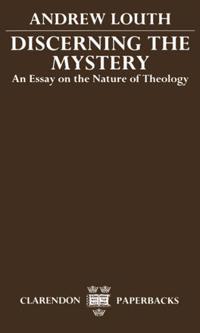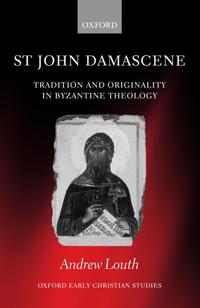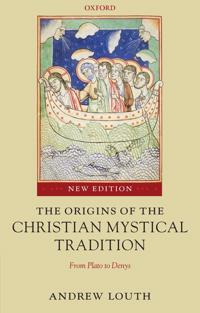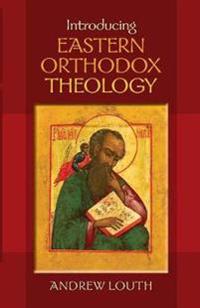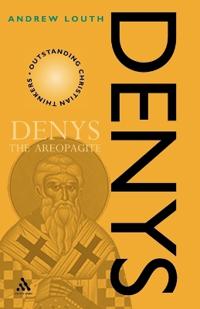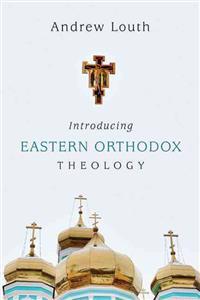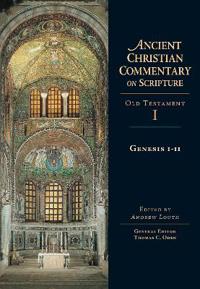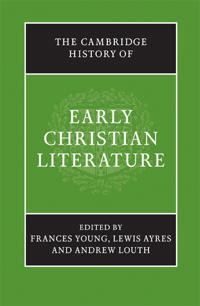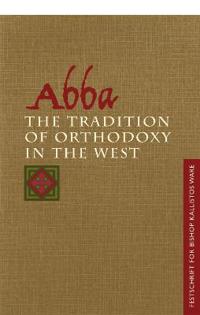Discerning the Mystery (Häftad)
avAndrew Louth
ISBN: 9780198261964 - UTGIVEN: 198910This book seeks to exorcize the spectre of the Enlightenment by drawing on H. G. Gadamer's demonstration of 'how little the traditions in which we stand are weakened' by the legacy of the Enlightenment. It then applies these insights to theology where the importance of tradition and the unity betwee[...]
St John Damascene (Häftad)
avAndrew Louth
ISBN: 9780199275274 - UTGIVEN: 200410John Damascene, one-time senior civil servant in the Umayyad Arab Empire, became a monk near Jerusalem in the early years of the eighth century. He never set foot in the Byzantine Empire, yet his influence on Byzantine theology was ultimately determinative, and beyond that his theological work becam[...]
The Origins of the Christian Mystical Tradition (Häftad)
avAndrew Louth
ISBN: 9780199291403 - UTGIVEN: 200701Scholars of the patristic era have paid more attention to the dogmatic tradition in their period than to the development of Christian mystical theology. Andrew Louth aims to redress the balance. Recognizing that the intellectual form of this tradition was decisively influenced by Platonic ideas of t[...]
Introducing Eastern Orthodox Theology (Häftad)
avAndrew Louth
ISBN: 9780281069651 - UTGIVEN: 201306The author is a world authority on Orthodox thought. This introduction is written in lively, non-technical language for readers of all religious backgrounds. 1. Introduction: Who are the Orthodox 2. Thinking and doing, being and praying: Where do we start? 3. Who is God? The doctrine of the Holy T[...]
Denys the Areopagite (Pocket)
avAndrew Louth
ISBN: 9780826457721 - UTGIVEN: 2002-08Andrew Louth examines all the traditions on which Denys' work draws: the Fourth Century Greek theologians, pagan philosophy and Syrian Christian thought. The corpus of Denys the Areopagite appeared in the sixth century and have since been deeply influential on Christian thinking both in East and Wes[...]
Introducing Eastern Orthodox Theology (Häftad)
avAndrew Louth
ISBN: 9780830840458 - UTGIVEN: 2013-10Genesis 1-11 (Inbunden)
avAndrew (EDT) Louth, Marco (EDT) Conti, Andrew (EDT) Louth
ISBN: 9780830814718 - UTGIVEN: 2001-04"The Ancient Christian Commentary on Scripture does what very few of today's students of the Bible could do for themselves. With the aid of computer technology, the vast array of writings from the church fathers - including much that is available only in the ancient languages - have been combed for [...]
The Cambridge History of Early Christian Literature (Pocket)
avFrances M. (EDT) Young, Lewis (EDT) Ayres, Andrew (EDT) Louth
ISBN: 9780521697507 - UTGIVEN: 2007-11The writings of the Church Fathers form a distinct body of literature that shaped the early church and built upon the doctrinal foundations of Christianity established within the New Testament. Christian literature in the period c. 100-c. 400 constitutes one of the most influential textual oeuvres o[...]
Abba (Pocket)
avKallistos (EDT) Ware, John (EDT) Behr, Andrew (EDT) Louth
ISBN: 9780881412482 - UTGIVEN: 2003-02This Festschrift celebrates the joyful heart and retirement from thirty-five years of university teaching of Bishop Kallistos Ware, a person who has found his monastic "desert" among the "dreaming spires" of academia, and his "cell" in the lecture room. The Festschrift contains articles by renowned [...]

